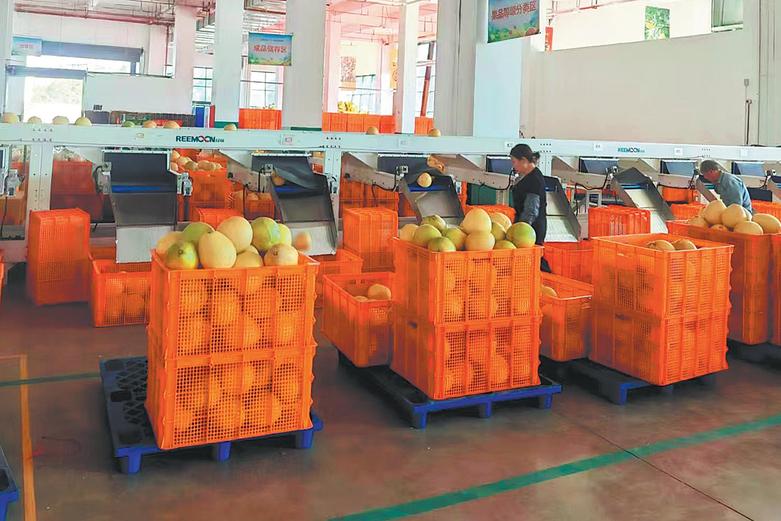Scholarships boost China-ASEAN relations

Students from member countries learn lessons in friendship at colleges in the southwest. Mo Jingxi reports.?
When he applied for scholarships for overseas study as a 19-year-old high school graduate in Cambodia with an interest in computers, Heng Piseth never thought he would one day study in the Guangxi Zhuang autonomous region.
"Computers were still a luxury in Cambodia in 2010, so I was eager for a chance to study the major abroad, but my family could not afford it," he said.
In 2011, the government of Guangxi started awarding scholarships to students from Association of Southeast Asian Nations members, which offered Heng Piseth more opportunities.
He was one of 6,947 students from ASEAN members who were awarded scholarships that year.
After being accepted by Guangxi University for Nationalities in Nanning, the regional capital, Heng Piseth became a freshman majoring in software engineering.
"The years I spent there were very worthwhile because I learned new skills, made many Chinese friends who left a good impression on me, and I also learned a lot from them," he said in fluent Mandarin.
After graduation, he returned to Cambodia and now is a technical manager at Nice TV, the country's first Chinese-invested television channel, making full use of his computing and language skills.
Anniversary
This year marks the 15th anniversary of the establishment of the strategic partnership between China and ASEAN, and China has said it always regards the bloc as the priority of its neighborhood diplomacy.
In 2016, Premier Li Keqiang proposed that people-to-people exchanges become the third pillar of China-ASEAN cooperation, after political security and economic and trade cooperation.
According to the Foreign Ministry, nearly 100,000 students from ASEAN members are studying in China, an eightfold increase from 2003.
Meanwhile, statistics from the Guangxi Education Department show that the number of ASEAN students in the region rose by about 10,000 every year from 2013 to 2017.
"Most ASEAN graduates return to their home countries and become bridges for China-ASEAN friendship in all walks of life," said Luo Yaoguang, director of the department's external cooperation and exchanges division.
According to Luo, some graduates set up companies in their home countries and hire local people, "which is also a good thing for local economic development".
Scott Wang, vice-president of the World Trade Centers Association, an organization in the United States that promotes trade and development across the world, said, "Talent training is an important part of China-ASEAN cooperation when Chinese enterprises such as e-commerce giant Alibaba are entering the markets of Southeast Asian countries."
As an example, he spoke of how a translator who speaks Mandarin, Indonesian and English facilitated a Chinese company's communications with local partners in Indonesia.
"Business is not an isolated thing. Instead, it is a kind of interaction between people," he said, noting that ASEAN graduates can use what they have learned in China to play a role in their own countries.
By contrast, Melody Tan, a 25-year-old Malaysian who graduated from Guangxi Arts University in July, has decided to stay in China and explore more opportunities for her entertainment career.
Encouraged by her family, especially her father, she applied to the Guangxi government for a scholarship that would give her the opportunity to study pop music vocal performance in a professional, systematic manner. At the time, she was a sophomore in New Zealand.
"China's entertainment and music industries are relatively mature, which could provide more opportunities for me," she said.
Indeed, opportunities have already arisen.
Tan became known to both Chinese and Malaysian audiences during her junior year in 2014 after taking part in The Voice of China, a reality TV singing competition that featured very few foreign entrants.
"I think music is a very important element for cultural exchanges between different countries because it has no boundaries and can touch people," she said.
She added that the scholarships provide a good opportunity for people who want to study overseas, but cannot afford to do so.
"It helps to broaden one's horizons," she said, although she conceded that she would have considered studying in China even without a scholarship.
- Chinese tech firms race to build AI computing capabilities in space
- Chinese vice-premier urges strengthened efforts to cultivate outstanding engineers
- Shunyi celebrates global volunteer contributions
- Chinese, French leaders vow to strengthen bilateral cooperation
- Living allowance hiked to aid Tai Po blaze victims
- Chinese courts target corruption in private sector




































